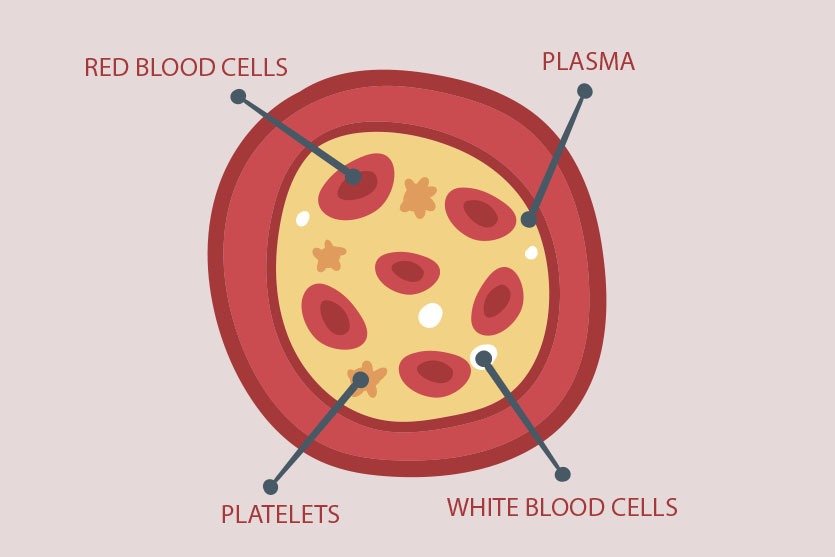
Advances in Blood Disorder Treatments: What’s New in Research and Modern Therapies?
Introduction
Blood disorders encompass a wide range of conditions affecting blood function, such as anemia, blood clotting disorders, and hemolysis diseases. These conditions can be either inherited or acquired, impacting red blood cells, white blood cells, and platelets. Blood disorders are diverse and multifactorial, posing a continuous medical challenge in understanding and treating them.
Advancements in Modern Treatment
The medical field has witnessed tangible progress in treating blood disorders, with modern technologies offering a diverse array of options to address these conditions. These therapeutic advancements include the use of gene therapy and bone marrow transplantation as effective methods in managing various blood disorders.
- Gene Therapies:
Gene therapies stand out as one of the most innovative techniques in blood disorder treatments, utilizing genetic intervention to address inherited disorders and immune-related diseases affecting blood cells. This treatment aims to repair or replace defective genes with healthy ones, thereby improving blood cell function and alleviating disease symptoms. - Bone Marrow Transplantation:
Bone marrow transplantation remains one of the prominent treatments for severe blood disorders such as bone marrow failure and certain forms of leukemia. This treatment rebuilds the blood system through stem cell transplantation, aiding in replenishing healthy blood cells and improving their function.
Utilizing these Advancements:
These modern techniques hold promise for many patients, offering better prospects in handling complex cases and enhancing their quality of life. With continued advancements in this field, these modern treatments are expected to increase in effectiveness, furthering the success rate in treating blood disorders.
Current Research Developments
The medical research realm persistently explores and studies various aspects related to blood disorders. Ongoing research efforts aim to understand the mechanisms behind these diseases and improve available treatments. Key ongoing developments in blood disorder research include:
- Genome Analysis and Personalized Therapy:
A significant focus lies in genome analysis to comprehend the genetic causes of blood disorders and develop tailored treatments for each patient. Researchers aim to utilize genomic data to determine the most optimal and effective treatment for individual medical conditions. - Cellular and Immune Therapies:
Research also revolves around employing cellular therapies like stem cells and genetically modified immune cells to bolster the immune system’s activity in combating blood diseases. - Innovations in Drug Therapies:
Pharmaceutical companies and research institutions continue to develop new drugs targeting blood disorders, including new therapeutic techniques or improvements to existing medications for greater effectiveness and reduced side effects.
Research and Clinical Significance
These research advancements expand the understanding of blood disorders and provide greater opportunities to develop innovative treatments that could change the course of managing these conditions and improve patients’ quality of life.
The Future and Expectations
The promising future of blood disorder treatments holds numerous potentials and promising prospects. Research and innovations in this field are expected to move towards personalized and tailored approaches to treatment, offering patients improved and more effective treatment options.
- The Shift Towards Personalized Treatment:
It is expected that efforts to develop customized treatments based on genomic analyses and an understanding of the precise nature of each disease case will increase. This approach involves using genomic data to determine the optimal treatment that best suits each individual. - Technological Innovations:
With the advancement of technology and medical techniques, a greater benefit from the applications of artificial intelligence and biometric imaging techniques is expected to understand, diagnose, and treat blood diseases more accurately and effectively. - Advances in Cellular Therapies:
The future is likely to see significant developments in immune cellular therapies such as stem cells and genetically modified immune cells, opening the door to innovative treatments that may be more effective for blood diseases.
Blood Disease Treatments:
- Bone Marrow Treatments and Stem Cell Transplants: Bone marrow transplantation and its success in reconstructing the patient’s blood system are among the most important treatments and are used in cases such as leukemia and bone marrow failure.
- New Targeted Therapies: There are new techniques that target the precise aspects of the disease, such as targeted therapies that focus on defective genes or specific factors in blood diseases.
- Research on Innovative Therapies: There are significant investments in research to understand the genetic and immune causes of blood diseases, which opens the door to discovering new and innovative treatments.
- Technological Developments: The use of advanced technology such as CRISPR/Cas9 for gene editing is a promising area in the treatment of genetic diseases.
- The Importance of Awareness and Comprehensive Care: Guiding and educating patients and their families is an important part of treating blood diseases, as it contributes to understanding the available treatments and the importance of regular care.
Important Figures:
These numbers and data demonstrate the importance and ongoing need for investment in research and development to improve treatments and care for blood disease patients.
- Number of People Affected by Blood Diseases: Millions of people around the world are affected by blood diseases, with numbers ranging from 300 to 350 million globally.
- Proportion of Genetic Cases: The proportion of genetic cases among blood diseases is estimated to be about 70% of all blood disease cases.
- Spending on Research and Development: Global spending on research and development in the field of blood diseases amounts to hundreds of millions of dollars annually, with companies and institutions investing in developing new treatments.
- Success Rates in Genetic Treatments and Bone Marrow Transplantation: Recent studies show encouraging success rates in genetic treatments and bone marrow transplantation, with success rates exceeding 80% in some cases.
- Impact of Technological Innovations: The use of innovative technologies such as CRISPR/Cas9 and artificial intelligence is expected to increase success rates in future treatments for blood diseases.
Conclusion
In conclusion, the impressive advancements in blood disorder treatments demonstrate remarkable progress in the medical field. With ongoing research and innovations, the future of treating blood disorders appears promising and bright. Advancements in medical technology, coupled with an increased understanding of genetics and hereditary factors, pave the way for effective and personalized treatments for each individual.
Acknowledging the challenges these treatments face, the continuous commitment of the scientific and medical community to ongoing research and innovation fosters hopes for further innovative and effective treatments, aiding millions of people suffering from blood disorders in obtaining better care and healthier lives.









Joanna4082
April 28, 2025Awesome https://rb.gy/4gq2o4
Barry1733
April 30, 2025Very good https://is.gd/N1ikS2